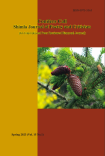The Bruised Heart of Africa: Devil on the Cross
Set against the backdrop of postcolonial era in Kenya, Ngugi wa Thiong’o’s Devil on the Cross portrays irony at its crest – with the devil on the cross instead of Jesus. Written entirely in Ngugi wa Thiong’o’s Gikuyu language after he stated that he would no longer put pen to paper in English, the tome is a decisive assessment of Kenyan civilization. Profoundly allegorical, it is written, purportedly on toilet paper, while the writer was detained in penitentiary. Devil on the Cross is an attempt in a revolutionary novel; in fact, the circumstances in which it came to be written warranted nothing less than that, and it can be clearly inferred that he had been detained illegally by Kenyatta’s government without framing any formal charges against him and without producing him before the court of law.
Free thoughts on toilet papers … a difficult task … to use a language which did not have a modern novel, a challenge to myself, and a way of affirming my faith in the possibilities of the language of all the different Kenyan nationalities, language whose development as vehicles for the Kenyan people’s, anti-imperialist struggles had been actively suppressed by British and Colonial regime. Further I would use … everything I had ever learnt about the craft … But content – not language and technique – would determine the eventual form of the novel. AND THE CONTENT? THE KENYAN PEOPLE’S STRUGGLES AGAINST THE NEOCOLONIAL FORM AND STAGE OF IMPERIALISM. (164)
Pallavi Bhardwaj

